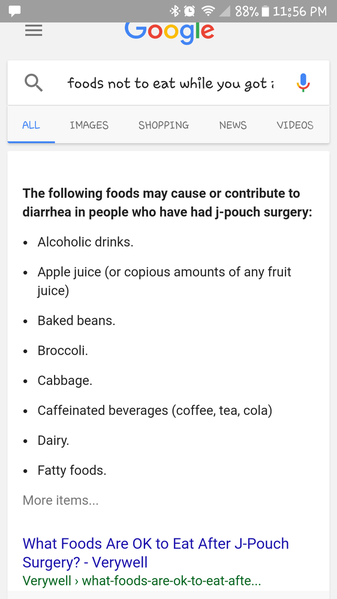At least four different things are significant with sauerkraut. All of them matter.
1) Sauerkraut can be a good source of probiotic bacteria. This will vary with the preparation and the source. Homemade sauerkraut will probably be best for this, but the safest recipes have an unpleasant amount of salt. You won't get as high a dose of probiotics as from something like VSL #3, but you may get a wider variety of beneficial bacteria. They won't be bred to survive the stomach, but some will probably make it. Cooking completely destroys any probiotic benefit.
2) Sauerkraut has *lots* of insoluble fiber, just like the cabbage it's made from. Some J-pouchers do fine with insoluble fiber, and some have a terrible time. If you don't tolerate insoluble fiber, then you're better off getting your probiotics some other way.
3) Sauerkraut (like cabbage) can be very gassy for some people, and some J-pouchers tolerate gas better than others. This is usually very controllable with Beano, assuming you take the Beano with the first bite. There are generic versions of Beano (alpha galactosidase), but simethicone (Gas-X) is mostly useless for this purpose.
4) Cruciferous vegetables are indeed great for you, if you tolerate them. If they make you ill then they aren't good for you, even if they would have been under imaginary circumstances.
The most important thing about your diet is that it works for you without making you sick, or ruining your day. It's pretty easy to get probiotics at the drug store or natural food store, so eat sauerkraut if it makes your life better, not if it makes it worse.




